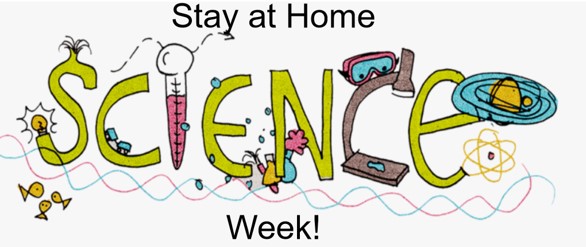1f. Science Week

How Do I Take Part?
Step 1- Find the plans and resources on the school website. (You have already done this!)
Step 2: Select an activity from the list below.
Step 3- Follow the link, watch the video, and/or read the instructions.
Step 4- Complete the scientific activity with the support and guidance of an adult.
Step 5- Record how many ‘Science Week Electrons’ you have earned.
2 Electron Activities:
Each time you complete one of these activities, you can add 2 ‘Science Week Electrons’ to your total. Instructions for each activity can be found using the following link or in the documents attached to the bottom of this page.
https://www.stem.org.uk/resources/elibrary/resource/25416/do-try-home#&gid=undefined&pid=2
- Straw gun
- Can You Balance The Stick
- Making a Moving Foil Boat
- Sew an Ice Cube
- Spot a Raw Egg from a Cooked One
3 Electron Activities:
Each time you complete one of these activities, you can add 3 ‘Science Week Electrons’ to your total. A video and instructions for each activity can be found by following the relevant links. Instructions for each activity are attached to the bottom of this page.
- Rubber Band Cannons
https://www.rigb.org/families/experimental/rubber-band-cannons
- Homemade Parachutes
https://www.rigb.org/families/experimental/homemade-parachutes
- Fizzy Cubes
https://www.rigb.org/families/experimental/fizzy-cubes
- Candle Chemistry
https://www.rigb.org/families/experimental/candle-chemistry
- Balancing Structures
https://www.rigb.org/families/experimental/balancing-structures
4 Electron Activities:
Each time you complete one of the BIG QUESTIONS, you can add 4 ‘Science Week Electrons’ to your total.
- BIG Question (A) – How tall are the people in your family? Is there a link between how old you are and how tall you are? Is that the same all the way through your life?
- BIG Question (B) – Can you measure your heart rate while you are resting? How does it change if you exercise? Why is that?
- BIG Question (C) – How is NASA finding out about Mars? How has the Corona virus made it more difficult?
- BIG Question (D) – What is a mutation? What does that have to do with Covid -19?
5 Electron Activities:
Do some research on floating and sinking. The BBC Bitesize sight is a good starting point:
https://www.bbc.co.uk/bitesize/topics/zc89k7h
Watch the video of Mr M modelling how to complete a ‘Fair Test’. Read Mr M’ modelled examples of a prediction, conclusion and evaluation. Look at the success criteria outlined in the ‘Scientific Writing Expectations’ document.
If you can complete and write up your own fair test, you can add 5 ‘Science Week Electrons’ to your total. Here are some possible questions to investigate:
- Does the weight on an object affect how well it floats?
- Does the size of an object affect how well it floats?
- Does the type of liquid affect how well an object floats?
- Does the container the water is held in affect how well an object floats?
How do I get my certificate?
Don’t forget to count up how many ‘Science Week Electrons’ you have earned in total. Send this information to Mr Mackinnon: beech@st-barnabas.kent.sch.uk and we will organise your Stay at Home Science Week Certificate.
The closing date for entries is Tuesday 2nd June.
EXTRA CHALLENGE:
How do you think Mr M is going to use the number of electrons you have earned to work out which certificate you get? Can you predict which certificate you will receive before it even arrives.
CLUE: Mr Mackinnon is going to use a tool called the Periodic Table to help him.
